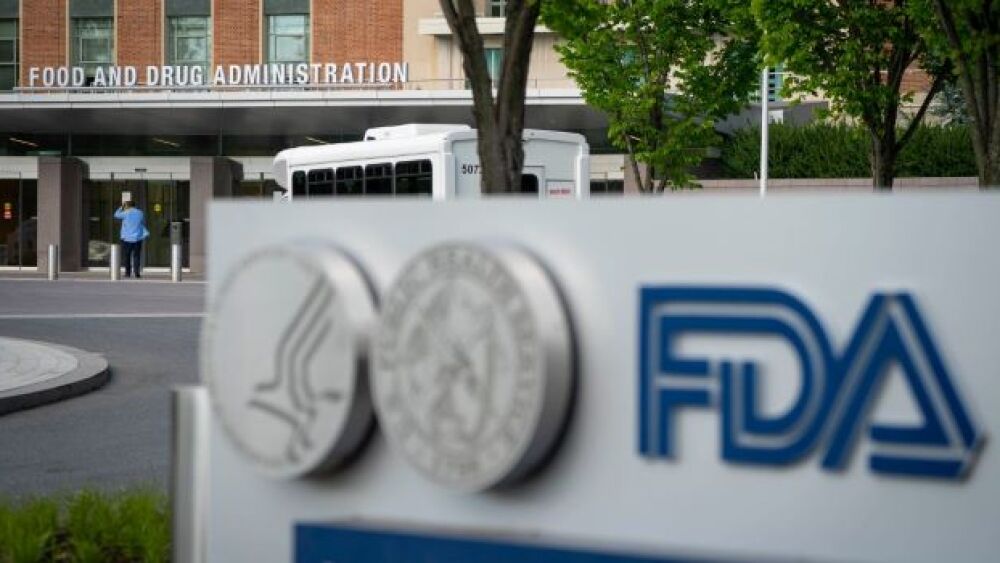Ardelyx announced the FDA’s OND, CDER, provided an interim response to the company’s second level of appeal for tenapanor. Here’s what you need to know.
Ardelyx got an response from FDA regarding the second appeal for its drug Tenapanor. (Sarah Silbiger/Getty Images)
On Monday, Ardelyx announced the U.S. Food and Drug Administration‘s Office of New Drugs (OND), Center for Drug Evaluation and Research (CDER), provided an interim response to the company’s second level of appeal for tenapanor.
The OND indicated that more input from the Cardiovascular and Renal Drug Advisory Committee and other clinical experts would be of use in further evaluating the clinical meaningfulness of the phosphate lowering effect the company reported in its Phase III program for the drug, which goes by the trade name Xphozah for this indication.
As such, the OND plans to direct the Division of Cardiology and Nephrology to bring Ardelyx’s New Drug Application (NDA) for tenapanor before the Cardiovascular and Renal Drugs Advisory Committee. In addition, it will require a response to the company’s appeal within 30 days after the conclusion of the adcomm meeting.
“We view the interim response that we received from the OND as an important next step in our ongoing pursuit of approval of Xphozah,” said Mike Raab, president and chief executive officer of Ardelyx. “We are pleased that the OND has acknowledged the importance of including input from expert clinicians, as part of an Advisory Committee meeting in order to further evaluate the clinical meaningfulness and significance of the phosphate reduction we have demonstrated with Xphozah.”
He added, “The nephrology community has been steadfast in its belief of the important role of Xphozah, with its novel mechanism of action, can play by providing a different approach to managing hyperphosphatemia in patients. While we await direction from the OND on the timing of this meeting, we look forward to the opportunity to further discuss Xphozah with the Cardiovascular and Renal Drugs Advisory Committee.”
In July 2021, the FDA issued Ardelyx a Complete Response Letter (CRL) for its tenapanor, which it is developing for the control of serum phosphorus in adults with chronic kidney disease (CKD) on dialysis. Then in November 2021, the company submitted a Formal Dispute Resolution Request (FDRR) to appeal the CRL.
Between those periods, Ardelyx, in an effort to “preserve cash resources and extend cash runway,” implemented a major restructuring plan and cut about 102 staffers, or 65% of its workforce.
The drug hit its primary endpoint in Phase III trials. In the CRL, the FDA claimed the data submitted by the company provided “substantial evidence” that the drug reduced serum phosphorus in CKD patients on dialysis. But the agency described the breadth of the efficacy as “small and of unclear clinical significance.”
In February 2022, the FDA issued an Appeal Denied Letter (ADL) for the drug for this indication. The CRL had indicated the company would need to run another clinical trial to demonstrate tenapanor’s clinically significant effect.
The drug is an investigational first-in-class phosphate absorption inhibitor (PAI). It acts locally in the gut to inhibit the sodium hydrogen exchanger 3 (NHE3), which decreases phosphate absorption via the paracellular pathway, the primary phosphate absorption pathway.
Tenapanor is already approved in the U.S. under the brand name Ibsrela. The drug is indicated for the treatment of irritable bowel syndrome with constipation (IBS-C) in adults.
On April 11, Ardelyx and its Japanese collaboration partner, Kyowa Kirin amended their license agreement, originally signed in 2017, granting Kyowa Kirin exclusive rights to develop and commercialize tenapanor in Japan for cardiorenal diseases, including hyperphosphatemia. Kyowa Kirin has agreed to pay Ardelyx up to $40 million in two tranches, with payment due after Kyowa Kirin files with Japanese regulators for tenapanor and the second payment due once it’s approved for hyperphosphatemia in Japan.
Kyowa Kirin is wrapping up its Phase III program for the drug for hyperphosphatemia and indicated it expects to file for approval in the second half of 2022, with a decision likely in the second half of 2023. Part of this amendment is dropping the royalty rates on net sales to Ardelyx from the high teens to low double digits for a two-year period, then to mid-single digits.





